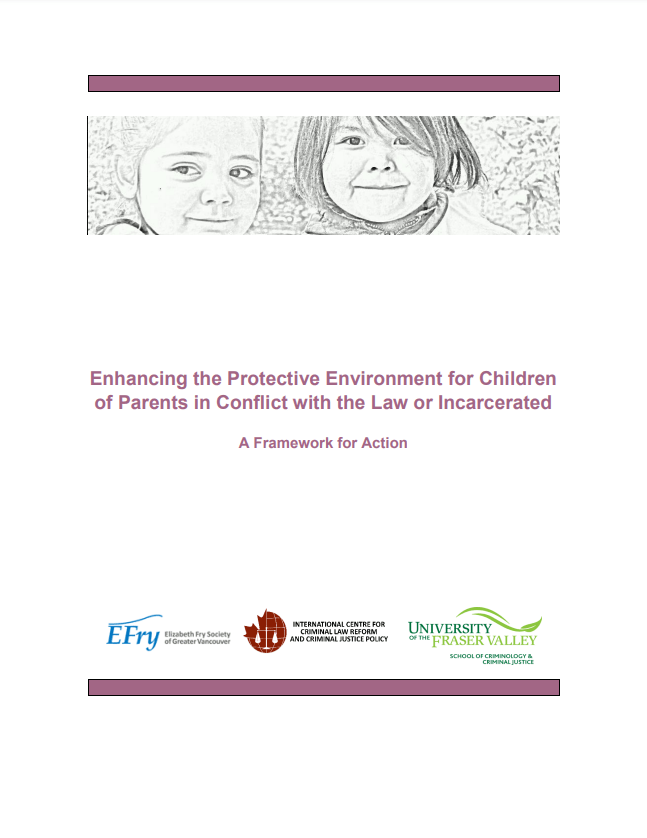26 search results
Minimizing the impact of the parents’ contacts with the criminal justice system on the children at the time of social reintegration of incarcerated parents
Recommendation 21:- Support the parents’ reintegration after incarceration (reintegration planning, housing at point of release, access to financial assistance, etc.) and provide support for family issues.
- Involve children’s families and caregivers in the planning of the parent’s release and return to the community.
- Work collaboratively with families to ensure a smooth transition of the incarcerated parent from custody to the community.
- Expand family contacts and increase family involvement in preparation for the parents’ release. Design and implement pre- and post-release reintegration programs that take into account the specific needs of individuals resuming their parental role in the community.
- Ensure that decisions regarding early release of incarcerated parents take into account their parental responsibilities, as well as their specific family reintegration needs and issues.
-
Category and theme:
Audience:
Groups affected:
Practical measures and strategies
Empowering community members through training on the use of the principle of natural justice and the safeguards of administrative fairness when interacting with government bodies
Recommendation 22: Section 7 of the Canadian Charter of Rights and Freedoms asserts that “Everyone has the right to life, liberty and security of the person and the right not to be deprived thereof except in accordance with the principles of fundamental justice.” The principles of fundamental justice are such that the substance of a decision is more likely to be fair if the procedure by which the decision was made has been just. The procedures based on the principle of administrative fairness safeguard individuals in their interactions with the state. These principles stipulate that whenever a person’s “rights, privileges or interests” are at stake, there is a duty to act in a procedurally fair manner.Practical measures and strategies
Providing training for professional staff working with offenders
Recommendation 23: Agencies working directly or indirectly with offenders and their children/families should receive training to ensure that children affected by their parents’ conflict with the law are treated sensitively and that assistance is provided to the children, the offenders, and their family to develop or maintain healthy relationships.- Provide training on child-related policies, practices and procedures, for all correctional staff in contact with children and their parents serving a prison sentence and/or a community-based sentence.
- Provide training for organization staff who come into contact with children and their imprisoned parents in areas such as the children’s needs and rights, the impact of imprisonment on the children, or how to support imprisoned parents, their children and their families.
-
Category and theme:
Audience:
Groups affected:
Practical measures and strategies
Committing to a culturally sensitive approach, including respect for Indigenous values and traditions
Recommendation 24:- Support the development of systems, standards and practices that respect and reflect the pivotal place that culture, tradition, values, language and identity play in the lives of children.
- Help children build connection to community, culture, group, clan, and extended family when those relationships have been damaged.
- Engage community resources without a formal mandate to support the children and their families.
- Help Indigenous children and heal families by helping children preserve their aboriginal identity.
- Keep Indigenous children connected to their land, languages and culture.
- Make use of Indigenous decision-making process.
- Work closely with Indigenous communities to identify ways to protect children of parents in conflict with the law without removing them from the family or the community, and find homes within the children’s extended family or community.
-
Category and theme:
Audience:
Practical measures and strategies
Working with the media and with public opinion
Recommendation 25: Provide the public, through the media and other means, with reliable and up-to-date data and good practice examples to increase their awareness regarding the children affected by parental imprisonment and their needs, and to prevent stereotyping and stigmatizing children with imprisoned parents.-
Category and theme:
Audience:
Groups affected:
